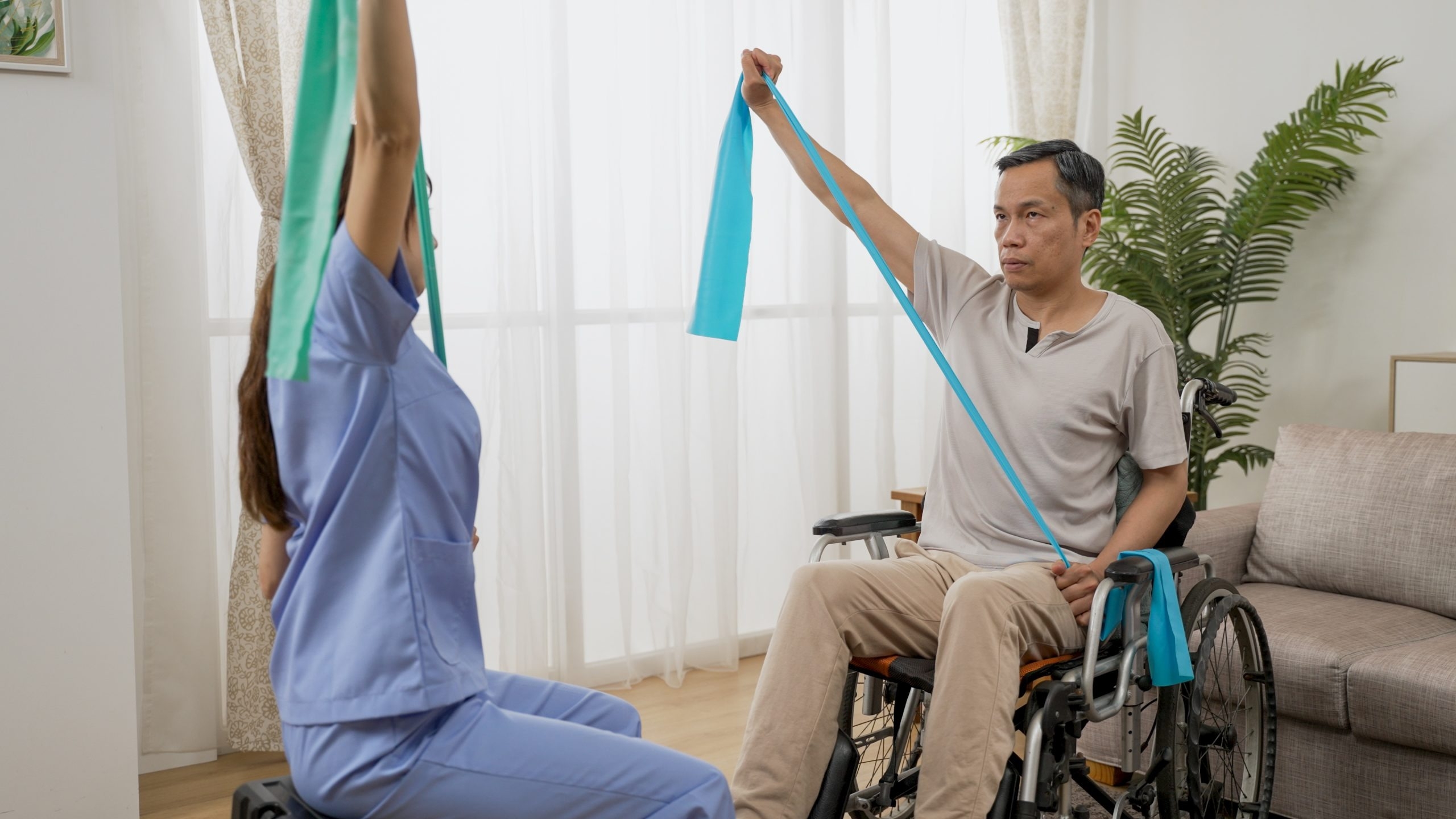Stroke Rehabilitation Care Support: Comprehensive Recovery Approach

Understanding Stroke Rehabilitation
A stroke can change a person’s life instantly, affecting mobility, speech, and cognitive abilities. Stroke rehabilitation care support plays a crucial role in helping patients regain their independence. With the right therapy, medical assistance, and emotional support, recovery becomes possible.
Importance of Early Rehabilitation
Early intervention in stroke rehabilitation care support increases the chances of regaining lost abilities. Rehabilitation should start as soon as possible to prevent complications such as muscle stiffness or loss of function. The brain has a remarkable ability to rewire itself, and timely therapy can help in restoring movement and cognitive functions.
Types of Stroke Rehabilitation Therapies
Different therapies cater to specific impairments caused by a stroke. A tailored rehabilitation plan ensures that patients receive the care they need. Stroke rehabilitation care support includes physical therapy, occupational therapy, and speech therapy.
Physical Therapy for Stroke Recovery
Physical therapy helps in regaining movement, strength, and balance. Many stroke survivors experience weakness or paralysis on one side of their body. Therapists use exercises and mobility aids to improve movement. Stroke rehabilitation care support focuses on gradual progress, enabling patients to perform daily activities independently.
Occupational Therapy for Daily Activities
Occupational therapy helps patients relearn essential life skills. Stroke survivors often struggle with routine tasks like dressing, eating, and writing. Therapists guide them in adapting to new ways of performing tasks. Stroke rehabilitation care support ensures that patients develop the confidence to live independently.
Speech Therapy for Communication Improvement
A stroke can affect speech and swallowing abilities. Speech therapy focuses on improving communication skills, pronunciation, and language comprehension. Therapists use exercises to strengthen facial muscles and improve speech clarity. Stroke rehabilitation care support helps individuals regain their ability to communicate effectively.
Psychological and Emotional Support
Stroke recovery is not just physical; it also affects mental health. Depression, anxiety, and frustration are common among stroke survivors. Counseling and therapy play an essential role in emotional healing. Stroke rehabilitation care support includes mental health professionals who help patients and families cope with emotional challenges.
Role of Family in Stroke Rehabilitation
Family involvement is crucial for successful rehabilitation. Encouragement and support from loved ones motivate patients to stay committed to their recovery. Families can assist in exercises, help with medications, and provide emotional support. Stroke rehabilitation care support also includes caregiver training to help families understand how to assist in the recovery process.
Importance of a Multidisciplinary Team
Stroke recovery requires a team of healthcare professionals. Doctors, therapists, nurses, and caregivers work together to create an effective rehabilitation plan. Each expert plays a role in addressing different aspects of recovery. Stroke rehabilitation care support ensures a holistic approach to healing and regaining independence.
Technology in Stroke Rehabilitation
Advancements in medical technology have improved stroke rehabilitation outcomes. Robotics, virtual reality therapy, and brain stimulation techniques help patients regain motor skills faster. Stroke rehabilitation care support incorporates innovative treatments to enhance recovery. These technologies make therapy sessions more engaging and effective.
Nutrition and Lifestyle Changes
A healthy diet plays a crucial role in stroke recovery. Nutrient-rich foods promote brain health and aid in healing. Stroke rehabilitation care support includes dietary guidance to prevent further health complications. Lifestyle changes such as regular exercise, stress management, and quitting smoking also contribute to better recovery.
Long-Term Rehabilitation and Continuous Care
Stroke recovery is a long process that requires continuous care. Some patients recover quickly, while others need extended therapy. Ongoing rehabilitation ensures that patients maintain their progress and prevent further health issues. Stroke rehabilitation care support includes follow-up treatments and adaptive strategies to enhance long-term independence.
Community Support and Rehabilitation Programs
Support groups and community programs provide encouragement to stroke survivors. Interacting with others who have gone through similar experiences creates a sense of belonging. Many rehabilitation centers offer programs that focus on social integration and skill development. Stroke rehabilitation care support extends beyond medical treatment to help individuals reintegrate into society.
Home-Based Rehabilitation Options
Not all patients can attend rehabilitation centers. Home-based rehabilitation programs provide therapy in a familiar environment. Therapists visit patients at home to conduct exercises and monitor progress. Stroke rehabilitation care support at home ensures that patients receive consistent therapy without the stress of traveling to a facility.
Financial Assistance for Stroke Rehabilitation
Rehabilitation can be costly, but financial aid options are available. Insurance plans, government programs, and non-profit organizations offer assistance for stroke recovery. Patients and families should explore available resources to access quality rehabilitation services. Stroke rehabilitation care support should be affordable and accessible to everyone in need.
Preventing Secondary Strokes
After recovering from a stroke, preventing another one is essential. Regular medical check-ups, healthy habits, and prescribed medications help in reducing the risk. Stroke rehabilitation care support includes education on stroke prevention strategies, ensuring long-term well-being.
Conclusion
Stroke rehabilitation care support plays a critical role in helping survivors regain independence and improve their quality of life. A well-structured rehabilitation plan, emotional support, and lifestyle adjustments contribute to a successful recovery. Every stroke survivor deserves the best care to achieve maximum recovery. for blog visit our site afriprime.
- Questions and Answers
- Opinion
- Motivational and Inspiring Story
- Technology
- Live and Let live
- Focus
- Geopolitics
- Military-Arms/Equipment
- Sécurité
- Economy
- Beasts of Nations
- Machine Tools-The “Mother Industry”
- Art
- Causes
- Crafts
- Dance
- Drinks
- Film/Movie
- Fitness
- Food
- Jeux
- Gardening
- Health
- Domicile
- Literature
- Music
- Networking
- Autre
- Party
- Religion
- Shopping
- Sports
- Theater
- Health and Wellness
- News
- Culture

